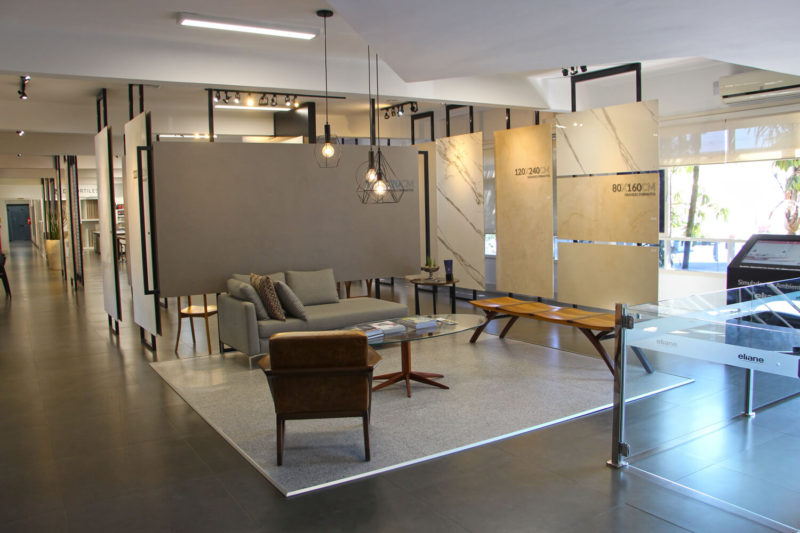
Metaverso

still not widespread, metaverse technology could revolutionize the way we live and how we're used to shopping, discover new spaces or things that range from clothes, to cars and even furniture and real estate. E, to elucidate a little of what is to come, Connectarch spoke with trend expert and agency founder Dezon, Iza Dezon.
But, before we start our conversation, let's understand what metaverse is? According to WGSN – a leader in forecasting fashion and consumption trends – metaverse is a shared digital space that will influence culture and design, enabling new modes of expression and experiences. The metaverse will be the support platform for all of our future interactions – online and offline.
alpha generation
Now that we understand what metaverse is, Iza tell us a little, looking under the historical aspect, how technology has been making great strides. "In 2015 we were already talking about metaverse. It was a way to explain this multilayered life we live today. Until the advent of the internet our life was one-dimensional, was the only option. With the arrival of the internet in the public domain – until then it was only used by the armed and government forces as a whole –, near 30 years ago, we started, in a way, to multiply our presence and the dimensions we inhabit. what are we starting to live, this two-dimensionality, it will be very palpable for the children of this generation, and Alpha (until 11 years of today). We are at the beginning of a great revolution in our perception of reality.”
Drawing a parallel with TV over the years 1950 which was inaccessible for the vast majority, as well as everything that comes up in a first moment, and that 'scared' and even made the radio 'think' that it would die, but on the contrary, still stands firm, even with so many other news and technological resources, Iza explains that new technologies are always absorbed, tested and, according to the demands, end up being democratized and become part of our daily lives, sem, necessarily, the detriment of others. "I believe the metaverse will, sim, perpetuate itself through the democratization of connected devices. Today we have about 2/3 of the online world, of these 2/3 a very large number with access to smartphones or tablets and for a long time we thought that this parallel reality, augmented or virtual, it would only be through a pair of glasses – those invented by Google in 2016 –, but the smartphone took a giant leap in this development. It is an exponential movement due to the democratization of production: the more we produce, the lower the cost and the more you can spread.”
The scholar brings an example of how these technologies are perceived and incorporated into our lives: "Today our cell phone is more powerful than the computer that took man to the moon. This evolution indicates the speed to come.” and complete: “A partir do Pokémon GO, in the gone, also, of 2016, we came to realize that augmented reality was there, in the palm of our hand", that is, according to her, these complementary realities today are extensions of our bodies and with an increasingly accelerated development, integrating the real world with the virtual, offering immersive experiences with the highest degree of reality. "We see an advance in a short period of time. In 2004, a portable camera with 2 megapixel was something out of this world, today the cell phone has 12.”
The metaverse as an access tool
During a pandemic, the metaverse technology was an innovative option for some brands to get closer to their audiences, which opened a window for us to look into the future and see what could be a trend, as the subject matter expert tells. “Sim, the convergence of the physical to the digital is inevitable and will go through stages that we don't know yet. Making a parallel with the house, I understand that the housing of the future will have smart surfaces: fridge, mirrors and not necessarily a brushed steel house, for example. I believe it will be increasingly immersive, since we are able to do this on mobile, we are able to do this in the fridge and prototypes for this already exist. photovoltaic glasses, connected mirrors. This connection will be expanded.”
And in the corporate world it won't be different, explains Iza. "In companies, until another day, this innovation seemed like something just incremental., something that was there without so much function, it didn't change anything in the company's behavior, was superficial and, with the pandemic, became necessary, and when the thing is needed, change the key. If we continue to grow as a world population and have to continue to find space for ourselves, probably the idea of not having to commute to do everything you need to do, may be one of the factors that justifies this type of more solid implementation in companies.” and brought facts: "While it was incremental a lot of brands did: Dior has been doing it since 2015 augmented reality activations. Today, we need a lot of these things, like the video calls that were only for top executives, because a shift was much more expensive than a simple Skype call and, now, it democratized, and even interns do.”
It is noteworthy that the meetings that take place virtually are in a binary structure: people enter and leave the room. With the advent of the metaverse, it will be possible to hold the meeting in the meeting room located in the company, then, walk virtually through the environments and talk to co-workers, even take a coffee break, in a fully immersive reality.
No future, the human will miss the human?
A novelty in this century is that the pandemic canceled face-to-face meetings and 'hugs' and, as human species, there was a lack and a need to 'be together'. Asked if the next generations, who will already come much more used to high technologies, will replace human relationships with avatars or holograms, Iza believes not. “Our studies show that the more online we are, more offline we want to stay, more we want to be in nature. I believe there is, obviously, a part of our time that will be hijacked by the digital universe, and it wasn't because of the invention of books or even the arrival of TV that we stopped doing things that are instinctive and primal. No end, we are tribal: we need to be with people, we need to change. This is part of an ancient instinct. I believe that a lot is transferred to the digital universe, which doesn't mean we're going to interact less physically with people.”
The importance of new technologies
"In the past we thought that those ultra-connected boys who spent all day playing video games would die early and today they are millionaire hackers, startup owners. We were wrong and everything worked out with them. Now, they are there, solved problems, inclusive, social, working with this access that the internet allows. And then we come to an all-important point, rich and interesting, because when we think about the transsexual community today, for many young people it is a relief to have a metaverse, an internet that allows you to find other people like you who are not around you. When that person knows they are unique among their acquaintances, but then finds out that 1% of the world, near 800 a thousand people are just like her and can be 'accessed' thanks to the internet, it makes an absurd difference, inclusive in the mental health of these individuals", celebrates Iza.
Inequality and excess connectivity
like everything in life, the technological issue also has two sides., and the negative, according to Iza, is the access to technologies not being equal, mainly in Brazil. "It's not a democratic access and, looking to Brazil, we still don't have basic sanitation for everyone, while there are people who have two cell phones. a discrepancy! The same way people want to go to Mars, there are people wanting to save the planet. Diametrically opposite positions.”







